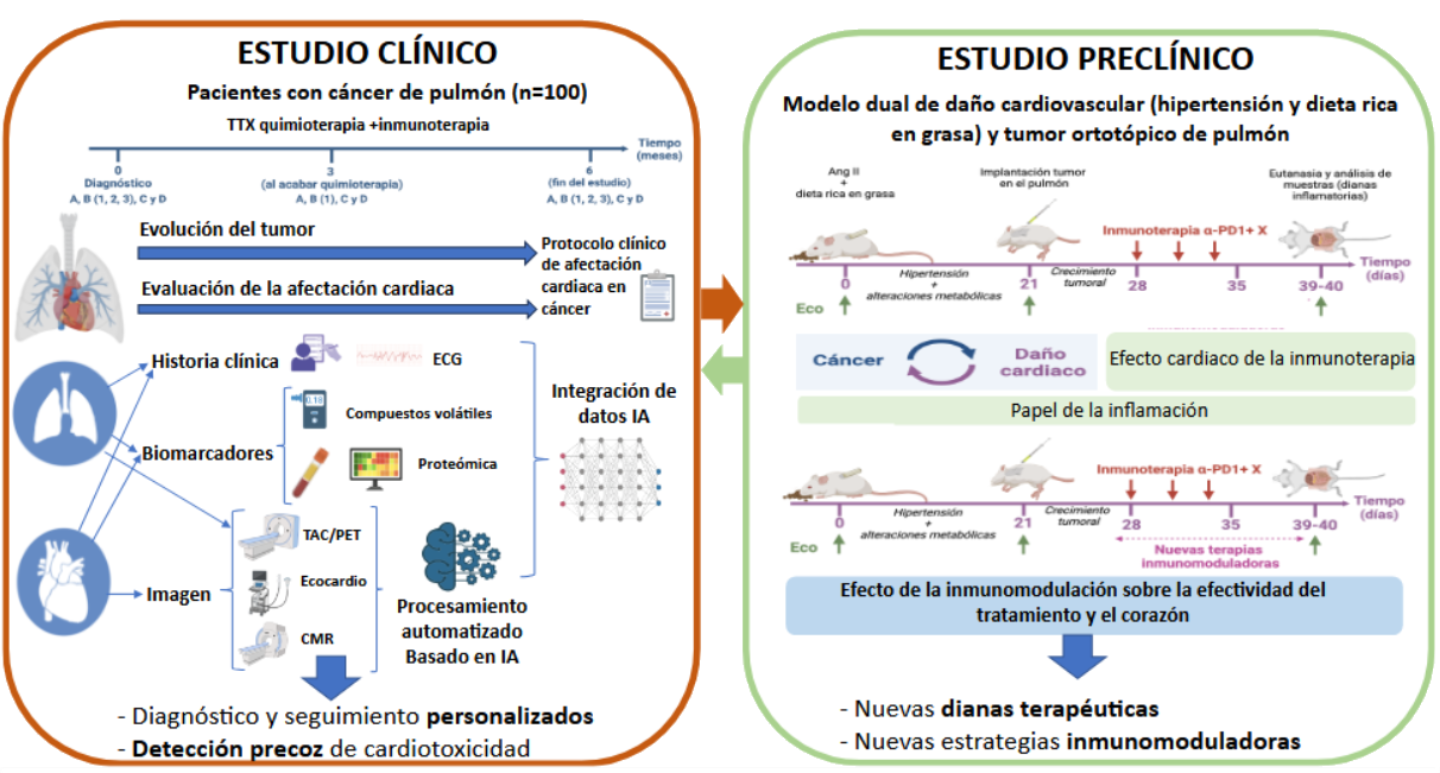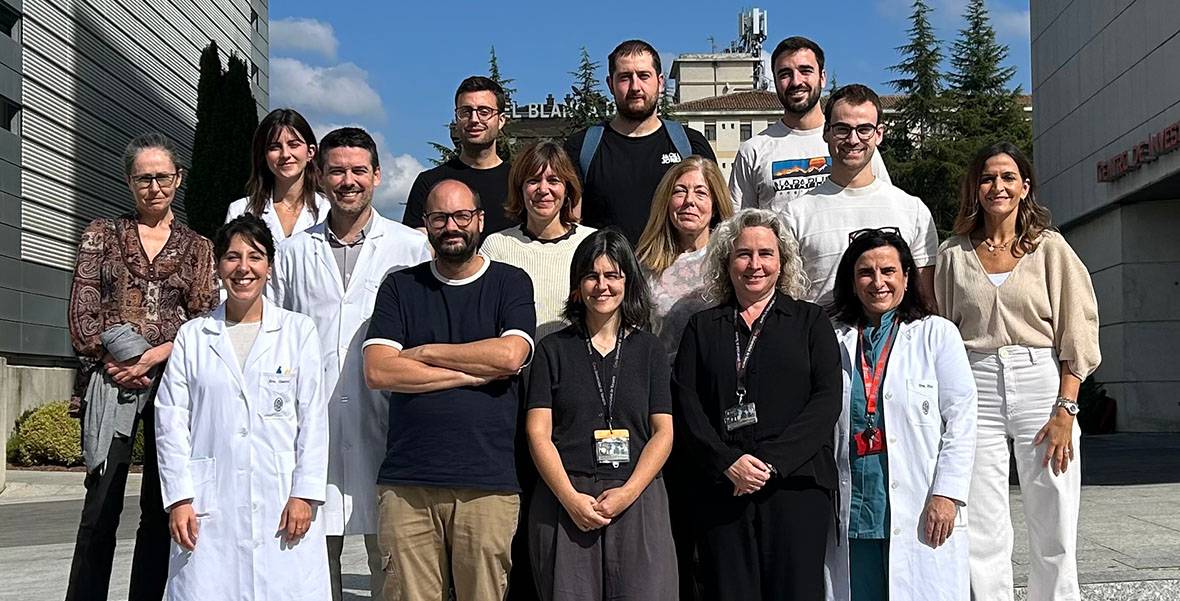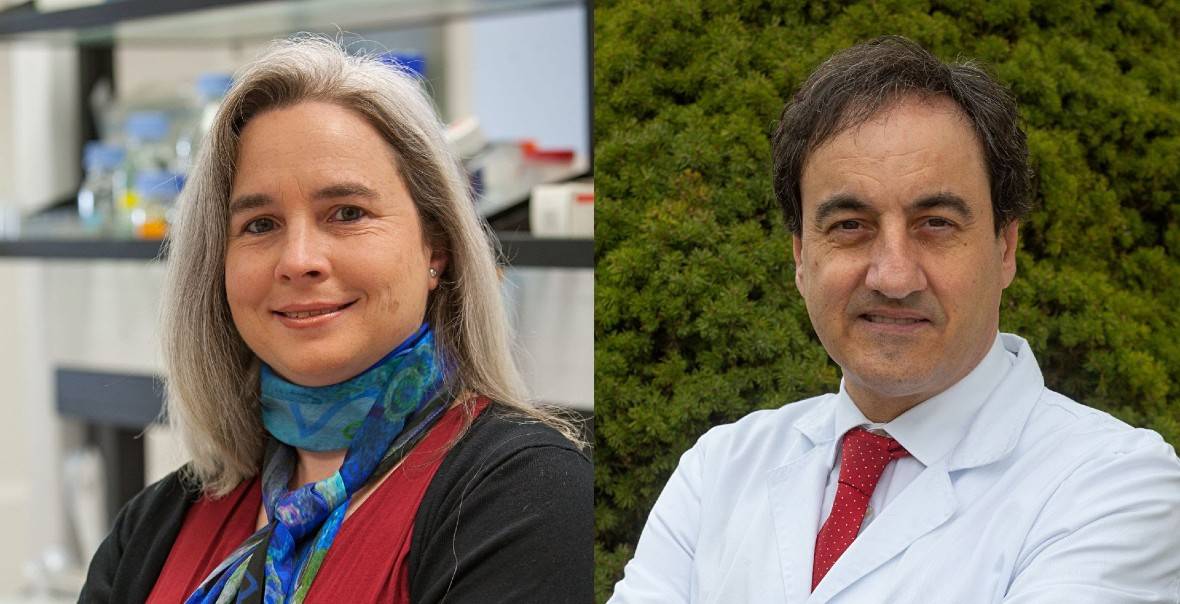IRATI Project
Inflammatory interactions between respiratory tract cancer and cardiovascular disease: New diagnostic tools and immunomodulatory therapies
Cancer and cardiovascular disease are two of the leading causes of mortality and loss of quality of life in our society. Their incidence increases in parallel with the progressive aging of the population. Specifically, lung cancer has a high incidence in Navarre. Patients with this disease also have a high risk of suffering cardiovascular complications and dying from heart-related causes.
In this context, there are common pathophysiological mechanisms, such as inflammation, that enhance the interaction between cancer and cardiovascular (CV) damage. These mechanisms exacerbate the progression of both pathologies and increase their morbidity and mortality. They can also reduce the effectiveness of treatments, including immunotherapy. Likewise, antitumor treatments can have cardiotoxic effects, promoting the onset and/or progression of cardiac pathology, which can further complicate the clinical situation of patients. Therefore, there is an urgent medical need to improve the comprehensive evaluation of these patients, including new tools for personalized diagnosis, risk stratification, and monitoring of treatment effects in relation to tumor evolution and the progression of CV involvement.
This research is funded by the Government of Navarra for strategic R&D projects (2025).

Need more information?
If you are interested in learning more about our research, please contact us.
Coordinator and partners in IRATI Project
Project coordinator:
- FIMA through Cima Universidad de Navarra
Project partners:
- Fundación Miguel Servet - Hospital Universitario de Navarra
- Clínica Universidad de Navarra
- NNBi
- Tairel Data
- Eversens
- ADItech
Objectives of the IRATI consortium
Personalized medicine, advanced therapies, and advances in health (GEMA IX).
Relationship between lung cancer and CV involvement
Characterize the relationship between lung cancer and CV involvement in both patients and advanced experimental models.
Clinical strategy
Improve the clinical strategy for assessing cardiac involvement in patients with lung cancer.
Diagnosis
Improve diagnostic procedures to assess the progression of tumor damage and cardiac involvement together.
Identify new therapeutic targets
related to inflammation and explore the potential of immunomodulatory therapies to improve the efficacy of immunotherapy and mitigate its cardiotoxic effects.
 Project participants
Project participants
|
|
|
|
|
|
|
|
|
|
|
|
|
|
- Maider Sada Allo
- Yeray Rodríguez Rincón
- Maruxa Arana Remírez
- Gonzalo Eciolaza Ferrando
- Maitane Bermúdez López
The IRATI consortium will contribute to improving clinical practice through a comprehensive, innovative, and multidisciplinary approach that responds to priority medical needs. This joint effort brings together clinical experts in lung cancer, cardiology, and radiology from the University of Navarra Clinic and the University Hospital of Navarra, along with biomedical researchers from CIMA and technology companies such as NNBi, TAIREL Data, and EVERSENS, which specialize in artificial intelligence, data management, and the development of new biomarkers. In addition, the project incorporates a cross-cutting gender perspective, thanks to the participation of AdiTech.


